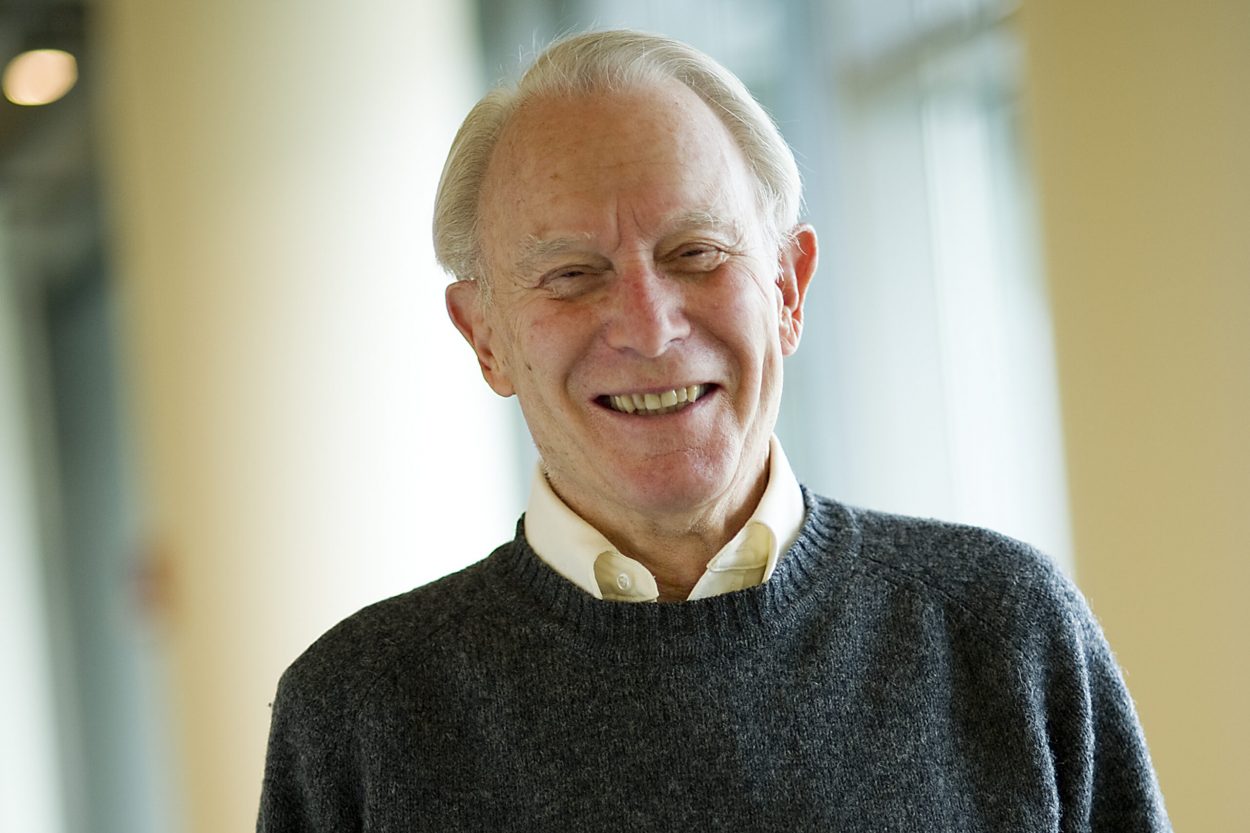Donald L. M. Blackmer, professor emeritus of political science at MIT, died on Aug. 14. He was 91.
A highly regarded scholar in international studies, he was also a longtime leader at MIT, serving variously as executive director of the Center for International Studies, head of the Department of Political Science, associate dean of the School of Humanities and Social Sciences (now the School of Humanities, Arts, and Social Sciences), director of the Program in Science, Technology, and Society, and head of MIT Foreign Languages and Literatures (now MIT Global Studies and Languages).
Blackmer received his bachelor’s degree from Harvard College, where he graduated magna cum laude in history and literature. He continued his studies at Harvard University, where he received a master’s in regional studies on the Soviet Union and a PhD in political science.
He began his career at MIT as executive director of, and eventually served as assistant director of, the Center for International Studies (CIS). The CIS was created in 1951 to aid the United States in its Cold War battle against the Soviet Union. Blackmer later chronicled the center’s beginnings in a fascinating book, “The MIT Center for International Studies: The Founding Years 1951 to 1969,” to mark the center’s 50th anniversary.
“Don was a fine scholar,” says Richard Samuels, director of CIS and Ford International Professor of Political Science. “He wrote a widely cited book on the international relations of the Italian Communist Party, and co-authored a book with Max Millikan on U.S. foreign aid. He also published on the French Communist Party and on the Soviet Union. But, on his own account, scholarship was not his primary calling. He was an institution builder. In 1956, he turned down a job offer to work as an assistant to McGeorge Bundy at Harvard, to come down-river to MIT to serve as a deputy to Max Millikan and Walt Rostow — the dynamic and powerful founders of the MIT Center for International Studies. As executive director of the young CIS, he made it possible for them, and those he helped them recruit, to light up the scholarly landscape.”
“A man of uncommon good sense and warmth,” says Eugene Skolnikoff, professor of political science emeritus, of Blackmer. “In some ways, Don was a curious fit to be successful in an MIT setting. He had a strong literature and humanities background, with little exposure to science and technology. His success in his role at CIS, and in subsequent positions he was asked to fill, showed to the MIT leadership how able Don was to lead and build in an environment that was foreign to his original education or experience. It was a record of stable and often imaginative stewardship in an institution focused on subjects I’m sure Don never expected to be a part of.”
Blackmer, a steward of institutions, was also a steward of people.
“Don was a steady mentor, academic advisor, listener … and, ultimately, friend. His humility, kind humor, patience, intellect, and elegant behavior were examples to me of what I could become,” says Astrid S. Tuminez PhD ’96. Tuminez serves as president of Utah Valley University and was a former executive at Microsoft.
Brian Taylor PhD ’97 credits Blackmer for encouraging him to complete his dissertation. “I think it’s fair to say that he played the biggest role of my committee in making the final project stronger and in helping me get done. It was Don who closely read each chapter as I produced it and gave me detailed and actionable recommendations on how to revise the chapter. This feedback gave me the confidence to keep pushing ahead on a project that at times seemed unmanageable and never-ending. Don was there throughout — even after he retired to make sure the dissertation was in ‘good enough’ shape.” Taylor is professor of political science at the Maxwell School at Syracuse University.
Blackmer authored four academic books, including “The Emerging Nations: Their Growth and United States Policy,” with Max F. Millikan (Little, Brown & Co., 1961). The book was cited in Foreign Affairs as a significant source for U.S. policy. He also served as chair of the Council for European Studies and member of the Council on Foreign Relations.
“Don was not only an immensely productive scholar and administrator, he was also a sweet and generous colleague. He will be dearly missed in the department,” says David Singer, Raphael Dorman-Helen Starbuck Professor of Political Science and head of the Department of Political Science.
Tributes from Blackmer’s colleagues and students are available on the Center for International Studies website.
